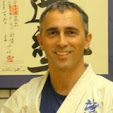
Pine Needles, Yosemite National Park

Millenium Challenge
In 2000, the U.S. Joint Command Forces, a sort of think tank within the military, began planning a war game named Millennium Challenge. The scenario of the game was as follows: a rogue military commander had broken away from his government somewhere in the Persian Gulf and was threatening to engulf the entire region in war. He had a considerable power base from strong religious and ethnic loyalties, and he was harboring and sponsoring four different terrorist organizations. He was virulently anti-American. There were two teams in the game; the Red Team, which played the rogue forces position, and the Blue Team, which played the American military position.
The Red Team was small in number compared to the Blue Team, which had every war technology in existence at its disposal for the game. The Red Team had technology, too, but it was miniscule compared to its opponent’s. Prior to the game’s start no one expected the Red Team to win.
The Red Team’s leader, a former American Colonel by the name of Paul Van Riper, had some radical (for the military) ideas of how to deal with the scenario he was given. He had his team analyze their options BEFORE the actual engagement. They figured that Blue Team would go after certain of their assets, like communication and power systems, first. So they devised plans for acting without these resources. Then they trained their basic skills, like troop movement and low-tech communications (using couriers on motorcycle rather than satellite phones) over and over and over again until their forces felt confident of these skills.
As important as these preparatory actions were, what truly distinguished the Red (rogue) Team from the Blue Team was its management system once actual fighting began. The Red Team allowed its leaders in the field make decisions without having to check back with central command before acting. Van Riper and his leadership group described their role as being “in command but out of control.” While errors were made by the Red Team, their “messy” organizational system had one overwhelming advantage: allowing people to operate without having to explain themselves constantly turns out to enable something called “rapid cognition.” Rapid cognition is like the flash of insight we sometimes get that produces the solution to a nagging problem. The Blue Team, on the other hand, held endless meetings with charts and computer screens and the whole Power Point misery we’ve all experienced. In the midst of battle, the Blue Team was overwhelmed by its own attachment to massive but useless information processing. It was a classic case of “paralysis by analysis.”
The Red Team won the Millennium Challenge in 2 days.
The world we live in is afloat in information. We’re barraged by “news” and entertainment options, and purchasing choices, and lifestyle decisions 24/7. A cell phone comes with a 200-page User Manual. A trip to Starbucks provides us with dozens of options FOR COFFEE. Its crazy-making and worse, this surfeit of information in minor matters can cloud our judgment when something really important confronts us. Malcolm Gladwell's new book, Blink, details how this has come to pass and what strategies exist for dealing with it. Its an interesting read, but yet another bit of information that floods our minds.
Karate-do offers us a way to practice being “in command but out of control” in our own lives without referring to a book. Our practice reduces the “noise” of the 21st century that threatens to engulf us and allows us to hear and respond to our intuition. Call it Rapid Cognition or A Funny Feeling, our intuition is a valuable resource, perhaps the most important resource, when faced with having to make a decision.
At a certain point, we have to acknowledge that more information won’t help us. Karate-do, or “moving zen” as Kaicho sometimes refers to it, can be viewed as a practice of paring away the things that no longer serve us in order to better appreciate and cultivate those parts of life that do. By simplifying, but not over-simplifying, we allow ourselves to be more available to the moment before us. Being available, we meet what is here, now. Our lives, and the lives of the people around us, are enriched by our simple presence. Gambatte kudasai!
See you in the dojo!
